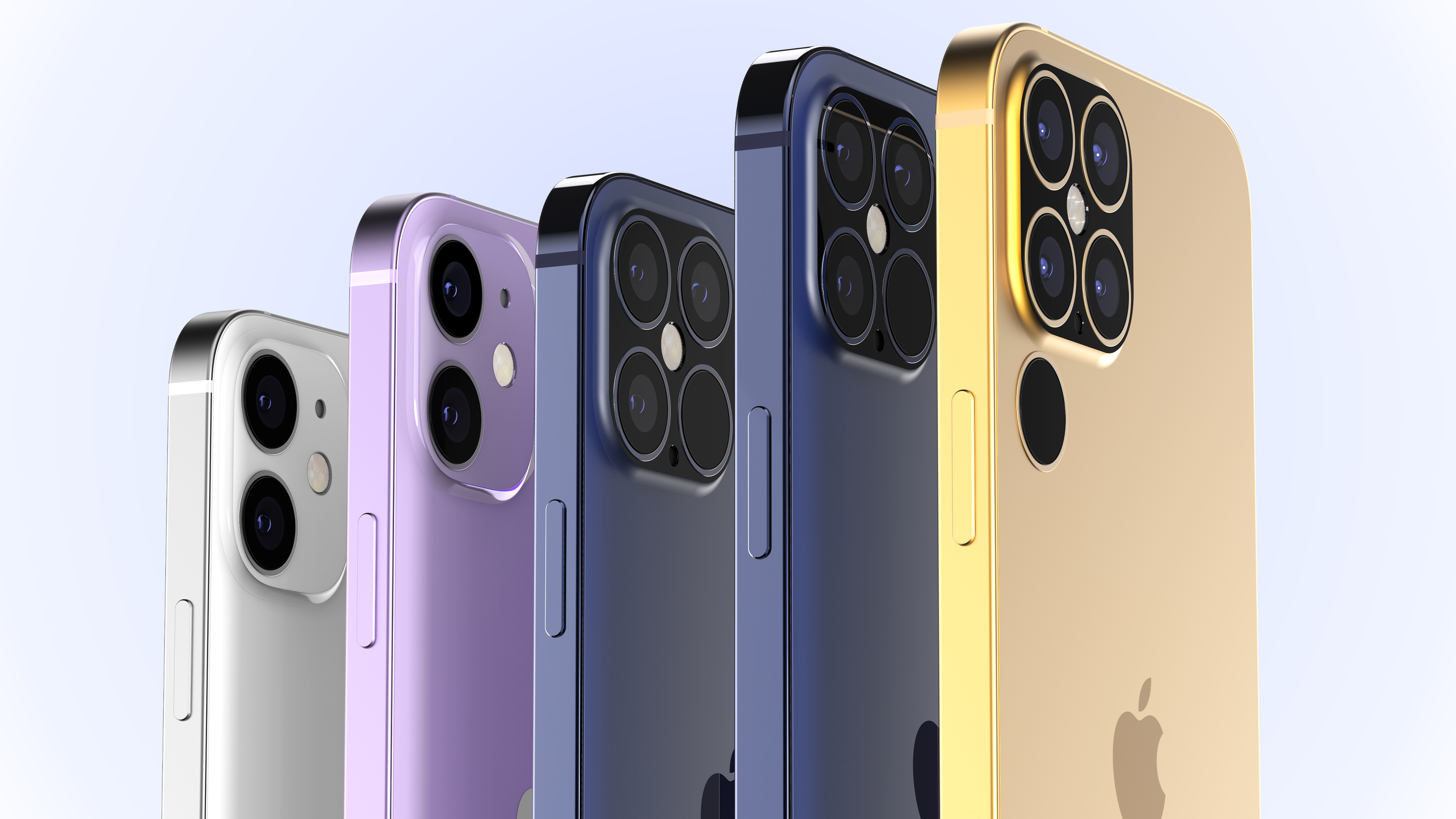iPhone 12 crushes Android rivals in speed test — but it has a soft spot
The Samsung Galaxy Note 20 Ultra and Google Pixel 5 are left in the dust by the iPhone 12 Pro

Sign up to receive The Snapshot, a free special dispatch from Laptop Mag, in your inbox.
You are now subscribed
Your newsletter sign-up was successful
Each year, a new iPhone model gets put through a series of rigorous tests to see how it compares to its Android foes. This time, the iPhone 12 and its A14 chip are in the hot seat.
YouTuber Austin Evans ran side-by-side benchmarks between the iPhone 12 and its closest rivals to see whether Apple's new phone can really topple the best Android has to offer.
- Best smartphones in 2020
- iPhone 12: Release date, price, specs and more
- iPhone 12 vs. iPhone 12 Pro: Which new Apple phone is best?
The verdict? The iPhone 12, with the A14 Bionic chip, is in a league of its own in most cases.
We start with the Geekbench 5 benchmark, which measures a phone's overall performance. In this test, the iPhone 12 Pro put up a single-core score of 1,605 and a multi-core score of 4,033. Both results top the iPhone 11 Pro and Samsung Galaxy Note 20 Ultra by a decent margin and obliterate the Pixel 5, which is powered by a midrange Snapdragon 765G.
Next is JetStream 2, a benchmark designed to show how well a device will run through webpages. Again, the iPhone 12 Pro toppled the competition with a score of 182.6; the iPhone 11 Pro landed at 156.7 while the Note 20 Ultra puttered out at 73.6, just ahead of the Pixel 5 (53). Keep in mind, however, that the iPhone models ran Safari whereas the Android phones used Chrome for this test.
Where the iPhone 12 Pro didn't do so well is in the graphics test, conducted using the 3DMark Wild Life benchmark. When I say "didn't do so well" I mean when compared against its predecessor; the iPhone 12 Pro, hitting 39 fps, beat the Note 20 Ultra (25 fps) and Pixel 5 (6 fps) but lost out to the iPhone 11 Pro (42 fps).
What does this tell us? The A14 chip in the iPhone 12 Pro is faster than any of the Qualcomm Snapdragon processors powering the top Android phones. However, the graphics performance between the A13 and A14 hasn't improved, and if anything, it took a slight dip.
Sign up to receive The Snapshot, a free special dispatch from Laptop Mag, in your inbox.
We will publish our iPhone 12 and iPhone 12 Pro reviews in the coming days with our own benchmark scores.
H/T BGR
Phillip Tracy is the assistant managing editor at Laptop Mag where he reviews laptops, phones and other gadgets while covering the latest industry news. After graduating with a journalism degree from the University of Texas at Austin, Phillip became a tech reporter at the Daily Dot. There, he wrote reviews for a range of gadgets and covered everything from social media trends to cybersecurity. Prior to that, he wrote for RCR Wireless News covering 5G and IoT. When he's not tinkering with devices, you can find Phillip playing video games, reading, traveling or watching soccer.

